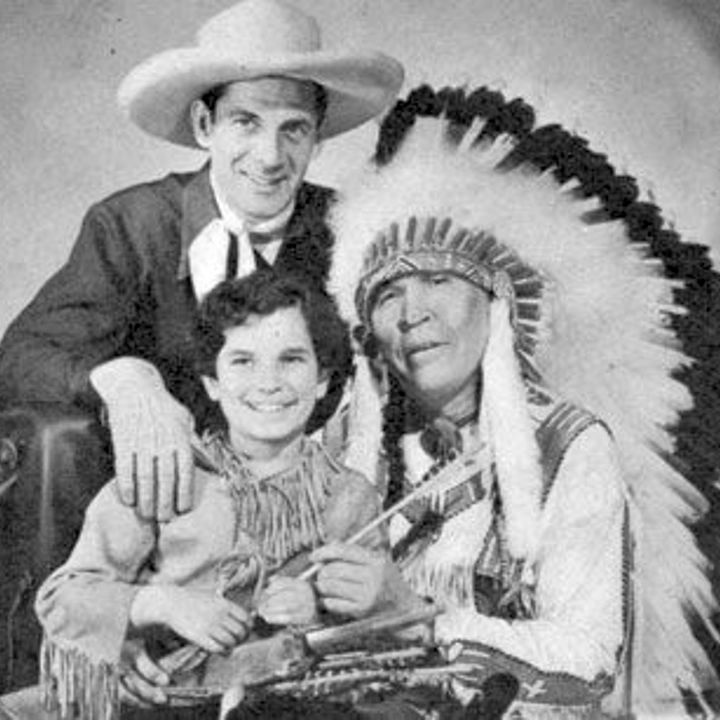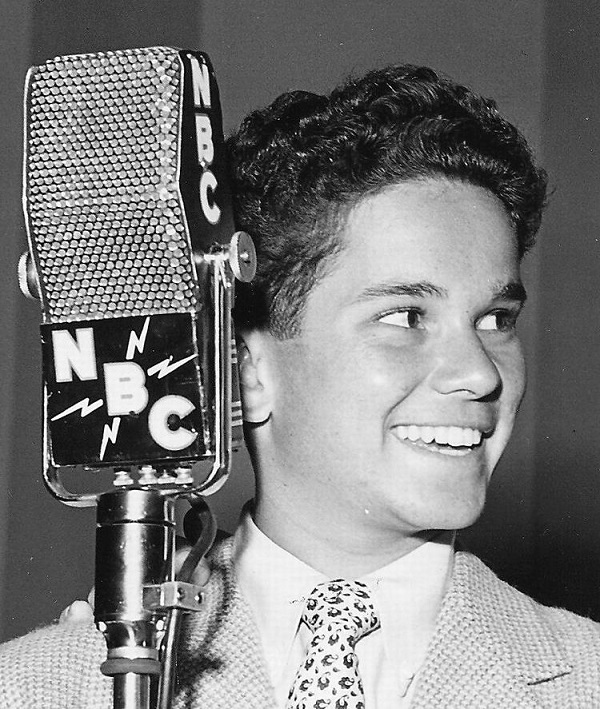Happy Birthday, Tommy Cook!
Posted by Ivan G. Shreve, Jr. on Jul 5th 2019
One night in 1941, child actor Tommy Cook was determined to see the Republic cliffhanger serial Jungle Girl. You see, he had a part in that motion picture as a native boy, Kimbu, so he stealthily sneaked out of the house and down to the neighborhood theatre…where he presented himself to the manager. Cook didn’t have the twenty-five-cent admission to get in, so he persuaded the manager to let him see the picture in exchange for making a personal appearance on stage. Done and done, as they say—and it probably stands as the lowest paid personal appearance in show biz history, instigated by the actor-producer-screenwriter born on this date in 1930.
Tommy Cook called Duluth, Minnesota home in his early years…in fact, Duluth was where he got his first taste of performing, winning a special prize (at the age of four) for “making a speech” at a father-and-son banquet. His father’s medical condition (he suffered from Bright’s disease, a kidney ailment) necessitated that the family move to warmer climes, so the Cook clan soon found themselves putting down stakes in Los Angeles. Tommy’s mother encouraged him to explore theatrics, so he studied at the Ben Bard School while performing at the Pasadena Playhouse as a child thespian. It was Arch Oboler who would give an eight-year-old Cook his first radio job, and who became sort of a mentor for the youngster.

One of Tommy Cook’s most prominent radio roles was “Little Beaver” on The Adventures of Red Ryder. He also played this part in the 1940 serial (opposite Don “Red” Barry as the titular cowpoke) in one of his first motion picture gigs. Tommy’s dark complexion made him a natural for roles in such films as The Tuttles of Tahiti (1942) and Tarzan and the Leopard Woman (1946), where he played “Kimba” opposite Johnny Weissmuller. Tommy appeared as the younger version of John Garfield’s character in Humoresque (1946), and could be seen in such silver screen titles as Hi, Buddy (1943), Strange Holiday (1945—a film written and directed by his mentor, Arch Oboler), Michael O’ Halloran (1948), Cry of the City (1948), and The Vicious Years (1950)—a movie that garnered him a Photoplay Award for “Outstanding Performance of the Year.”
As busy as Tommy Cook was on motion picture screens, his performances in front of a microphone were even more numerous. A 1944 Radio Life article (humorously titled “Busy Little Beaver”) noted that within one week Cook had appeared on Blondie, Mayor of the Town, Gallant Heart, Fashions in Rations (Billie Burke’s sitcom), The Great Gildersleeve, I Was There, and I Love a Mystery. Blondie was a regular gig for Tommy (he played Alexander Bumstead), as was The Life of Riley (as Chester A. Riley, Jr.), A Date with Judy (Judy’s brother Randolph), and Smilin’ Ed and His Buster Brown Gang. Cook’s work on comedy and variety shows extended to The Adventures of Ozzie & Harriet, Command Performance, Fibber McGee & Molly, Our Miss Brooks, and Point Sublime…plus guest spots on programs headlined by Abbott & Costello, Eddie Bracken, and Bob Burns.

Rounding out Tommy Cook’s radio resume are appearances on The Adventures of Sam Spade, The Adventures of the Saint, The Cavalcade of America, Family Theatre, Free World Theatre, Gunsmoke, The Lady Esther Screen Guild Theatre, Let George Do It, The Lux Radio Theatre, Suspense, Tales of the Texas Rangers, To the President, and Yours Truly, Johnny Dollar. Long after the curtain had been rung down on “Radio’s Golden Age,” Tommy could still be heard emoting on the likes of The Adventures of Harry Nile, Heartbeat Theatre, and The Sears Radio Theatre. Cook was also able to skillfully balance radio work with his motion picture career, notching up films like Panic in the Streets (1950), American Guerrilla in the Philippines (1950), Battle Cry (1955), Teen-Age Crime Wave (1955), Night Passage (1957), and Alaska Passage (1959) to his credit.
Tommy Cook began to make inroads on the small screen by the 1950s, guest starring on such popular shows as Dragnet, The Life and Legend of Wyatt Earp, and M Squad. The following decade saw Cook on such TV programs as The Untouchables, The Rifleman, and Perry Mason...yet he also reached back to his radio roots by providing voices for animated cartoon series such as The Superman/Aquaman Hour and The New Adventures of Huckleberry Finn. He’d continue his cartoon work throughout the 1970s with The Funky Phantom and Jabberjaw, while also guest starring on the likes of The Streets of San Francisco and Marcus Welby, M.D.
Some new horizons were opening up for Tommy in the 1970s. He served as an associate producer on such films as Rollercoaster (1977—which was based on his story) and Players (1979—he co-wrote the screenplay). His lifelong love of tennis inspired him to pitch to the networks a competition on the courts involving top-name celebrities from “the big three” that came to be known as “Celebrity Challenge of the Sexes.”
 Tommy Cook officially turns 89 today, and in honor of his natal
anniversary we invite you to check out one of his signature radio roles as
“Junior” in Radio Spirits’ The
Life of Riley collection Blue Collar Blues.
You can also hear Tommy on our Strange
Wills set, I Devise & Bequeath, and on our compendium of Mutual Radio Theatre broadcasts.
Happiest of birthdays to you, Tommy!
Tommy Cook officially turns 89 today, and in honor of his natal
anniversary we invite you to check out one of his signature radio roles as
“Junior” in Radio Spirits’ The
Life of Riley collection Blue Collar Blues.
You can also hear Tommy on our Strange
Wills set, I Devise & Bequeath, and on our compendium of Mutual Radio Theatre broadcasts.
Happiest of birthdays to you, Tommy!

